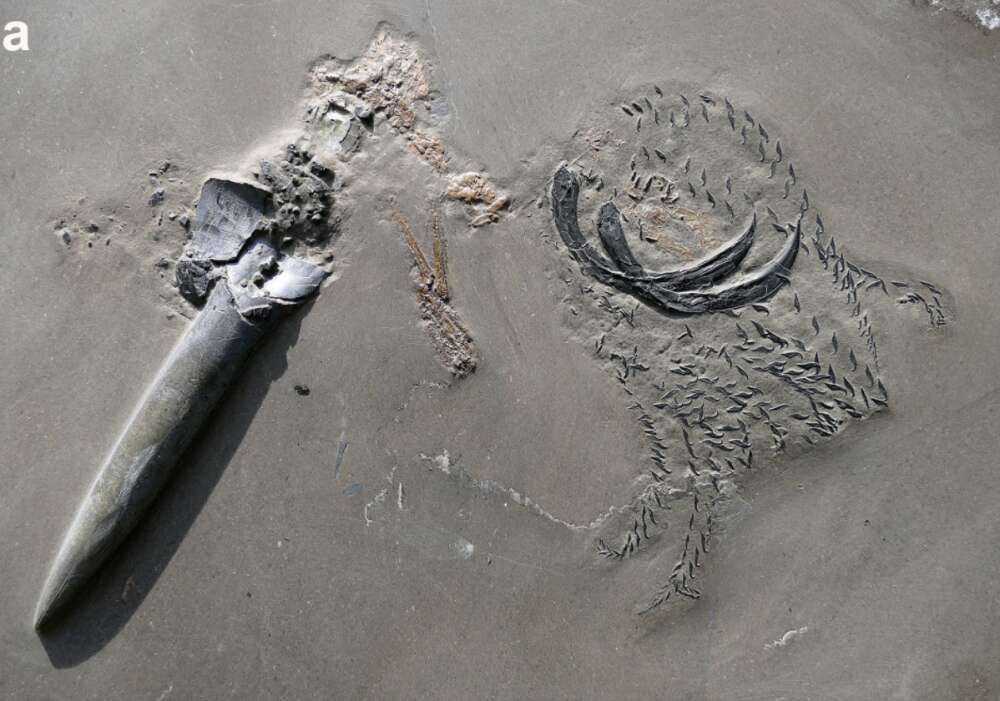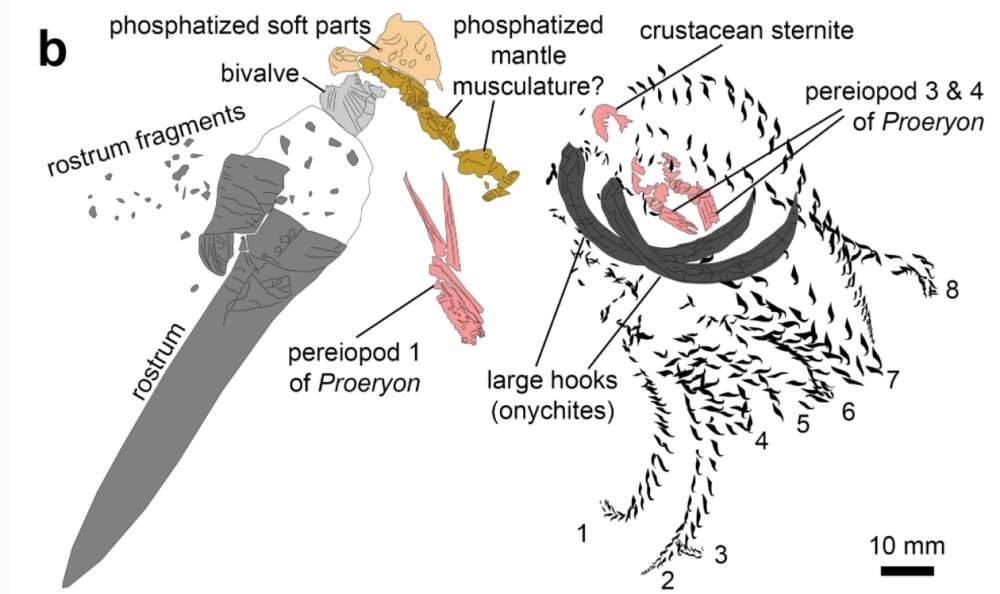A discovery made over 50 years ago by a fossil collector turned out to be quite an extraordinary find: A fossil of an ancient squid that was attempting to eat a crustacean — but was then itself bitten in half by a shark.
The fossil was originally discovered in 1970 by amateur collector Dieter Weber in the Posidonia Shale (also known as the Posidonienschiefer Formation) of southern Germany. A paleontologist later came across the 180-million-year-old specimen while visiting the collector’s private collection, and, seeing its value, quickly arranged for the State Museum of Natural History Stuttgart to purchase it for study.

In a paper published in the Swiss Journal of Palaeontology, the researchers describe the ancient squid (called a belemnite) taking a bite out of the lobster-like crustacean when it was unexpectedly bitten in half by a much larger predator. “Most of [the belemnite’s] soft parts are missing while the arm crown is one of the best preserved that is known. Its arms embrace an exuvia of a crustacean.” And, while the researchers can’t be completely sure, it’s likely that the bite was inflicted by the Early Jurassic shark Hybodus hauffianus. “This is remarkable, because it informs about the behavior of a cephalopod and a vertebrate predator.”
After the lethal bite, both the belemnite and crustacean sank to the ocean floor where they remained encased in sediment for nearly 200 million years.

Researchers dub these rare treasures “leftover falls,” and describe them as food remains that have been lost — or “left over” — for an unknown reason during a predatory attack.





